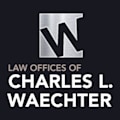Top Potomac, MD Theft Lawyers Near You
Award Winning Attorneys With 40+ Years of Combined Experience. Cases Litigated in All Counties in MD. Super Lawyers & AV Rated.
Se Habla Español
Free Consultation
Fighting for Everyday People in Tough Situations
Se Habla Español
When You’re Facing Criminal Charges, Don’t Leave Anything to Chance. Get the Best Representation You Can. Call Us Today!
Se Habla Español
Free Consultation
The Premier Criminal Defense Firm
Free Consultation
909 Rose Ave, Ste 640, Rockville, MD 20852
Other Nearby Offices
Clients needing legal solutions for Theft can connect with Rowe Weinstein & Sohn, PLLC, a local Maryland practice.
Se Habla Español
Free Consultation
Virtual Appointments
3475 Leonardtown Road, Suite 200, Waldorf, MD 20601-3678
Getting legal representation for your Theft issue is easier than you think. Let Law Office of Farmer & Klopfer in Potomac, Maryland help you today.
Free Consultation
2730 University Blvd. West, Suite 604, Silver Spring, MD 20902
9701 Apollo Dr, Suite 301, Upper Marlboro, MD 20774
7315 Wisconsin Avenue, Suite 205 East, Bethesda, MD 20814
600 Jefferson Plaza, Suite 308, Rockville, MD 20852
7845 Belle Pointe Drive, Greenbelt, MD 20770
5425 Wisconsin Avenue, Suite 600, Chevy Chase, MD 20815
7850 Walker Drive, Suite 160, Greenbelt, MD 20770
1030 West Patrick Street, Frederick, MD 21703
20 Courthouse Square, Suite 212, Rockville, MD 20850
1100 Wayne Ave, Suite 825, Silver Spring, MD 20910
11 North Washington Street, Suite 700, Rockville, MD 20850-4229
PO Box 86526, Montgomery Village, MD 20886
8720 Georgia Avenue, Suite 1002, Silver Spring, MD 20910
5410 McGrath Blvd, Ste 205, North Bethesda, MD 20852
6411 Ivy Lane, Suite 116, Greenbelt, MD 20770-1405
204 Monroe Street, Suite 109, Rockville, MD 20850
5400 Kenilworth Ave, Riverdale, MD 20737-3104
51 Monroe Place, Suite 707, Rockville, MD 20850
6495 New Hampshire Ave, Suite B260, Hyattsville, MD 20783
443 N. Frederick Avenue, Gaithersburg, MD 20877
815 Pershing Drive, Suite 506, Silver Spring, MD 20910-7449
17 West Jefferson Street, Suite 105, Rockville, MD 20850-4240
15 W. Montgomery Avenue, Suite 205, Rockville, MD 20850
Potomac Theft Information
Lead Counsel independently verifies Theft attorneys in Potomac and checks their standing with Maryland bar associations.
Our Verification Process and Criteria
Ample Experience
Attorneys must meet stringent qualifications and prove they practice in the area of law they’re verified in.Good Standing
Be in good standing with their bar associations and maintain a clean disciplinary record.Annual Review
Submit to an annual review to retain their Lead Counsel Verified status.Client Commitment
Pledge to follow the highest quality client service and ethical standards.
The Crime of Theft
A charge of theft can vary in severity and can be defined as robbery, burglary or larceny. Typically theft is defined as the taking of another person’s property without that person’s consent with the intent to deprive the rightful owner of it. The state you live in usually determines the typical definition of theft. An attorney can define a charge of theft for you as it pertains to your case.
What Is Considered a Theft Crime?
The term theft crime is used to refer to a broad category of crimes including robbery, larceny, petty (or petit) and grand theft, embezzlement, extortion and various forms of fraud.
Theft is said to have taken place when an offender steals, misappropriates or forcefully takes (in the case of robbery) property that does not lawfully belong to them.
Is Theft a Misdemeanor or a Felony?
Theft is considered petty/petit theft which is generally a misdemeanor if the sum value of goods or property stolen does not exceed a particular threshold. Said threshold depends on the state in which the case is being heard, but ranges from $500 to $1,000 in most instances.
For example, in certain states, petty theft is considered to be a Class A misdemeanor if the theft is less than $500 but in others where petty theft is also classified as a misdemeanor, that threshold is $950.
Some iterations of theft, such as armed robbery, are almost always classified as felonies. Regardless of the sum value of the property being stolen, robbery — armed or otherwise — is typically treated more severely than simple theft for a few reasons. Firstly, these forms of theft involve violent acts or at the least the threat of violence. Secondly, robbery and adjacent offenses involve aggression against a present victim (unlike, say, burglary committed when the victim or victims are not home).
What Is the Punishment for Theft?
The punishment for theft (or larceny, depending on the legal language used in individual statutes) varies from state to state. At the federal level, theft of public property could result in the guilty party being sentenced to prison for up to 10 years. If the sum of public property stolen is valued at less than $1,000, the maximum amount of incarceration which can be ordered in federal court is instead set at no more than one year.
Theft charges are more commonly pursued at the state level, however. Punishments generally correspond to the severity of the theft (the sum being stolen, aggravating factors such as the threat or use of force, etc.). Felony charges result in advanced penalties as compared to misdemeanor charges upon conviction. Misdemeanor convictions can lead to up to a year in jail, while felony convictions generally carry a prison sentence of between three to 25 years with them.
In the state of New York, grand larceny (their terminology concerning property theft) can fall under a variety of categorical degrees, from fourth to first-degree felony charges. Fourth-degree grand larceny charges result in up to four years imprisonment, as well as a fine of double damages, while first-degree grand larceny charges (levied when the sum stolen exceeds $1 million in value) can lead to a 25-year-long prison term.
How Can You Avoid Jail Time for Theft?
The best way to avoid a jail or prison term as a result of being charged with theft or theft-related charges is to secure skilled and experienced legal representation.
Have You Been Charged With Theft?
If you have been charged with the crime of theft, then you will have the option to hire an attorney or have one appointed to you. A skilled theft attorney can help protect your rights before and during trial.
Do You Need an Attorney for a Theft Charge in Maryland?
If you’re facing charges related to theft, it is vitally important that you immediately seek out legal representation. Without adequate legal counsel, the chances of avoiding conviction decrease. A professional and invested defense team will represent your best interests.
Attorney-client privilege allows you to discuss the particular details surrounding your case with your legal counsel, giving you the opportunity to divulge all material evidence and to decide the best course of action. Further, lawyers familiar with standing precedent, existing case law and the state statutes related to your charges may be able to engage a number of common defenses against theft charges — ranging from simple innocence (if the prosecution has a weak body of evidence) to entrapment, coercion, duress or a number of other options.
If, in your case, it is deemed that it might be better to attempt to negotiate (a plea bargain or similar) there is a strict advantage in having your lawyer do so on your behalf.






